What is Banking CRM in the Industry?

In the banking sector, a Customer Relationship Management (CRM) system serves as a vital tool for enhancing customer relationships and operational efficiency. By organizing customer data, tracking communication history, automating routine processes, and ensuring regulatory compliance, CRM platforms simplify tasks for both customers and bank employees. The global banking CRM software market was valued at $9.5 billion in 2021 and is projected to reach $39.2 billion by 2031, growing at a CAGR of 15.7%.
With features like contact management, sales and marketing automation, customer support tools, and advanced analytics, CRM systems enable banks to provide personalized experiences, anticipate customer needs, and deliver outstanding service. Plus, they help ensure compliance with ever-changing regulations, giving banks confidence in their operations.
By streamlining processes and strengthening customer relationships, CRM systems ultimately boost customer satisfaction, loyalty, and long-term success in an increasingly competitive financial world.
Let’s dive into how a CRM system benefits both banks and their customers.
Brief History of CRM in Banking
The concept of Customer Relationship Management (CRM) in banking dates back to the 1990s, when financial institutions began to recognize the importance of managing customer relationships to drive business growth. Initially, CRM systems were simple databases that stored customer information, allowing banks to keep track of basic customer details and interactions.
As the banking industry evolved, so did CRM systems. In the early 2000s, banks started adopting more sophisticated CRM solutions to improve customer satisfaction and loyalty. These early systems often included features like sales force automation, marketing automation, and customer service tools. However, they were typically customized to meet the specific needs of each bank, making them expensive and challenging to implement.
The 2010s marked a significant shift with the rise of cloud-based CRM solutions. These platforms offered greater flexibility, scalability, and accessibility, enabling banks to implement CRM systems without significant upfront costs. Cloud-based CRM solutions made it easier for banks to manage customer data, streamline operations, and enhance customer relationships.
Today, CRM in banking is a critical component of a bank’s overall strategy. Modern CRM systems incorporate advanced features such as artificial intelligence, machine learning, and data analytics. These technologies provide banks with deeper insights into customer behavior and preferences, allowing them to offer personalized customer service and improve customer satisfaction. CRM systems have become indispensable tools for banks aiming to stay competitive in the fast-paced financial services industry.
How Does CRM Benefit Banks with AI Integration?
Better Customer Satisfaction and Loyalty
Modern AI-powered CRM systems give banks a 360-degree view of each customer, analyzing preferences, transaction habits, and past interactions in real-time. With predictive analytics, AI can anticipate customer needs and recommend personalized financial products or services proactively. This data-driven approach helps banks create meaningful interactions, leading to higher satisfaction, stronger trust, and long-term loyalty.
Stronger Brand Reputation
In an era where every customer experience counts, CRM platforms equipped with AI tools analyze sentiment from customer interactions, emails, and social media. This enables banks to identify trends, address concerns proactively, and deliver consistently exceptional service. Positive experiences turn customers into brand advocates, amplifying trust and credibility across social channels and peer networks.
Improved Employee Collaboration and Efficiency
AI-enabled CRM systems go beyond simple task automation—they intelligently assign tasks, optimize workflows, and predict customer touchpoints that require immediate attention. Sales teams benefit from AI-driven sales forecasting, helping prioritize high-value leads and predict deal closures. Moreover, centralized customer data ensures seamless collaboration across departments, breaking silos and empowering teams to deliver a unified customer experience.
Increased Profitability
By using AI insights and analytics, banks can identify cross-selling and upselling opportunities with pinpoint accuracy. AI-powered CRMs analyze customer behavior to predict financial product needs, guiding sales teams to focus on the most promising leads. This optimization reduces acquisition costs, increases deal closure rates, and directly boosts profitability.
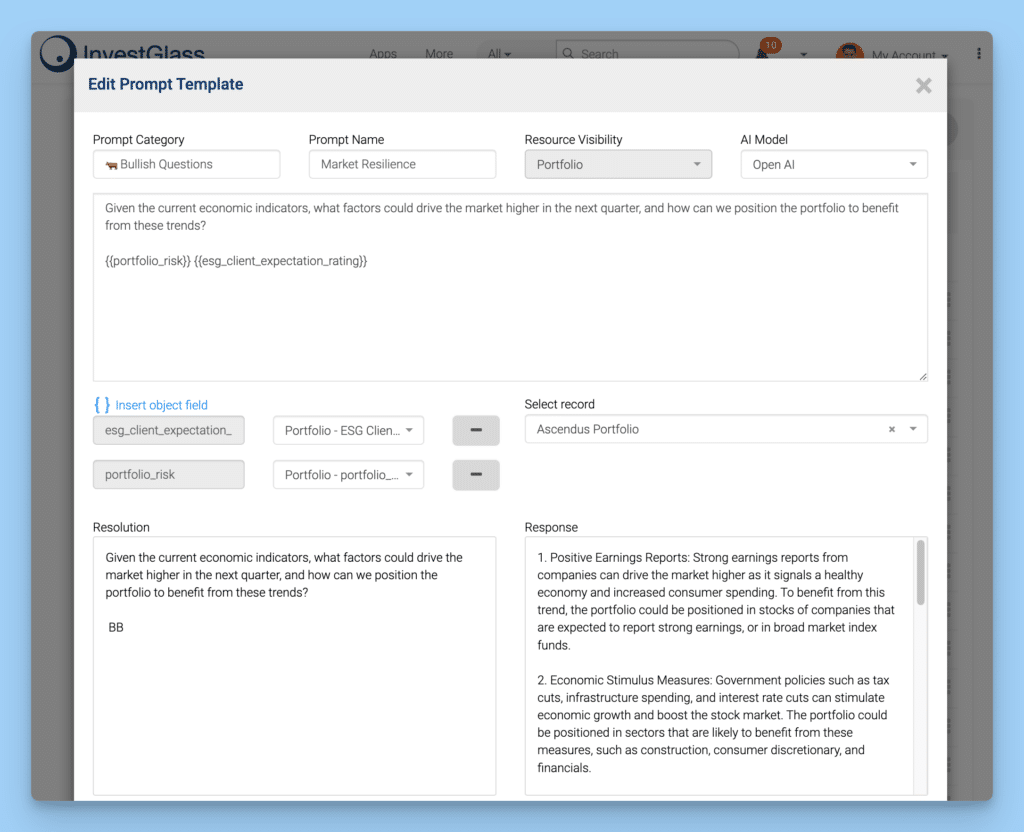
Regulatory Compliance Made Easy
Navigating complex compliance requirements is easier with AI-driven compliance management tools embedded in CRMs. These systems automatically monitor transactions, flag anomalies, and generate detailed audit trails. Real-time AI alerts ensure that potential compliance issues are addressed proactively, helping banks avoid costly fines and regulatory breaches. Additionally, AI simplifies report generation and documentation, making compliance processes smoother and more reliable.
Smarter Decision-Making with AI Analytics
AI-enabled CRMs provide advanced analytics dashboards that offer actionable insights into customer behaviors, market trends, and operational bottlenecks. This helps decision-makers develop data-backed strategies to optimize processes, improve customer experiences, and identify new market opportunities.
Incorporating AI into CRM systems isn’t just an upgrade—it’s a transformative shift. Banks leveraging AI-powered CRMs gain unparalleled efficiency, smarter decision-making, and the ability to stay ahead of both customer expectations and regulatory requirements. In a world where personalization and speed define success, AI is the key to driving long-term growth and sustainability in banking.
Benefits for Bank Customers
It’s not just banks that benefit—customers enjoy significant perks too! As a financial institution grows, the scalability of modern CRM software becomes crucial, allowing it to manage larger amounts of customer data efficiently.
24/7 Support and Assistance
CRM systems ensure that customers can get support anytime, whether it’s through self-service portals, chatbots, or quick access to support teams who already know their history.
Personalized Solutions with Visibility Tags, and AI
By analyzing transaction history and preferences, CRM platforms enable banks to offer tailored financial solutions that align with each customer’s goals and needs.
Clear and Timely Communication
Automated notifications and reminders keep customers informed about updates, deadlines, and offers—ensuring a smoother banking experience.
Core Features of Banking CRM Software
Every effective banking CRM system comes with a set of core features designed to enhance customer service and streamline operations. Integrating CRM software with the core banking system is crucial to ensure seamless communication and data synchronization across financial institutions:
- Centralized Customer Data: All customer details, transaction histories, and preferences in one place.
- Marketing & Sales Automation: Efficiently manage campaigns, leads, and opportunities.
- Customer Service Tools: Streamlined support ticketing and quick issue resolution.
- Workflow Automation: Automate routine tasks like onboarding and loan approvals.
- AI & Machine Learning: Data-driven insights to predict customer needs.
- Omnichannel Communication: Seamless communication across multiple platforms (phone, email, chat, etc.).
- Document Management: Centralized and secure document storage.
- Robust Security Features: Protect sensitive financial data with advanced security protocols.
- Analytics & Reporting: Gain valuable insights to make smarter decisions.
Implementing CRM in Banking: Step by Step
Implementing a CRM system in a bank requires careful planning and execution. Here are the steps to follow:
Assessing Your Banking CRM Needs
Before implementing a CRM system, it’s essential to assess your banking CRM needs. This involves identifying your business goals, understanding your customer base, and determining the features and functionalities you need in a CRM system.
- Identify Your Business Goals: Start by defining what you want to achieve with your CRM system. Are you looking to improve customer satisfaction, increase sales, or enhance customer engagement? Clear goals will guide your CRM strategy and help you measure success.
- Understand Your Customer Base: Gain a deep understanding of your customers. Who are they? What are their needs and preferences? How do they interact with your bank? This information will help you tailor your CRM system to meet customer expectations and improve their overall experience.
- Determine the Features and Functionalities You Need: Based on your business goals and customer insights, identify the essential features and functionalities your CRM system should have. This might include contact management, sales and marketing automation, customer service tools, and advanced analytics.
Choosing the Right Banking CRM Software
Once you have assessed your banking CRM needs, it’s time to choose the right CRM software. Here are some factors to consider:
- Functionality: Ensure the CRM software offers the features and functionalities you need to achieve your business goals and meet your customer needs. Look for tools that can help you manage customer data, automate marketing campaigns, and provide personalized customer service.
- Scalability: Choose a CRM software that can grow with your bank. It should be able to handle an increasing volume of customer data and interactions as your business expands. Scalability ensures that your CRM system remains effective and efficient over time.
- Integration: The CRM software should integrate seamlessly with your existing systems and applications, such as core banking systems and marketing automation tools. Integration capabilities are crucial for ensuring a smooth flow of information and enhancing overall operational efficiency.
- Cost: Consider the total cost of ownership of the CRM software. This includes not only the initial purchase price but also any ongoing maintenance fees, training costs, and potential hidden costs. Ensure that the CRM solution fits within your budget while providing the necessary features and benefits.
By following these steps, banks can successfully implement a CRM system that enhances customer relationships, improves customer satisfaction, and drives business growth.
Choosing the Right Banking CRM
Picking the perfect CRM for your bank can feel overwhelming, especially given the unique challenges and solutions specific to the banking sector. Here are some tips to make it easier:
- Set Your Budget: Know your spending limits and factor in extra costs like advanced AI tools.
- Prioritize User-Friendliness: Choose a platform your team can easily learn and use.
- Check Data Migration Options: Ensure your existing data can be smoothly transferred.
- Think Long-Term: Pick a scalable system that grows with your bank.
- Focus on Security & Compliance: Look for certifications like GDPR and SOC 2.
- Ensure Integration Compatibility: Make sure your CRM works well with your existing tools.
- Research Vendor Expertise: Check case studies and reviews from other banks.
- Request Demos: Test the platform to see if it fits your needs before committing.
Top Banking CRM Platforms
Here are some of the leading CRM platforms in the banking industry:
- InvestGlass – Known for no-code customization, Swiss sovreign, and including a full PMS.
- Salesforce Financial Services Cloud – Offers powerful tools for client insights and compliance.
- Microsoft Cloud for Financial Services – Integrated with Azure and Dynamics 365.
- Oracle CX – Focuses on seamless customer experience and AI tools.
- Pegasystems – Great for automating workflows and improving customer relationships.
- ServiceNow – Strong in workflow automation and customer service.
- BUSINESSNEXT – Focused on AI-powered outreach and lead management.
- Total Expert – Ideal for mortgage-focused banking operations.
- Zoho CRM – Affordable and customizable for smaller banks.
- HubSpot CRM – User-friendly with strong marketing tools.
Each platform has its strengths, so the key is finding the one that aligns with your bank’s unique goals and processes.
Top 10 Banking CRM Software Solutions
In today’s fast-paced financial world, a Customer Relationship Management (CRM) system is no longer optional—it’s essential. Whether you’re looking to enhance customer experiences, boost operational efficiency, or stay on top of regulatory compliance, a robust CRM can be your secret weapon.
Let’s explore the 10 best banking CRM platforms that are transforming the way financial institutions connect with their customers.
1. InvestGlass
Best for: Banks and wealth management firms seeking an all-in-one, highly customizable solution.
InvestGlass is uniquely designed for the banking and wealth management sector, offering a highly secure, end-to-end CRM platform that streamlines customer onboarding, portfolio management, and compliance monitoring.
Unlike generic CRMs, InvestGlass offers tailored solutions for financial institutions with pre-configured workflows and deep integrations specific to banking operations.
Key Features:
- End-to-End Customer Journey: From onboarding to portfolio management, everything is streamlined.
- Integrated Compliance Tools: Ensure effortless adherence to financial regulations.
- Automation Capabilities: Automate follow-ups, reporting, and communications.
- Custom Dashboards: Gain tailored insights for every banking role.
- Portfolio Management Tools: Manage investments directly within the CRM.
Why InvestGlass Stands Out:
- Specifically built for banking and wealth management.
- Highly scalable and adaptable to organizational growth.
- Strong data privacy and security features to meet global financial standards.
Pros: Tailored for financial services, robust compliance tools, integrated portfolio management.
Cons: May require initial setup and training for advanced features.
Why Choose InvestGlass?
InvestGlass combines industry-specific expertise with a user-friendly interface, empowering banks to deliver exceptional customer service while staying ahead in a competitive market. Whether you’re a retail bank, private bank, or wealth management firm, InvestGlass is designed to grow with you.
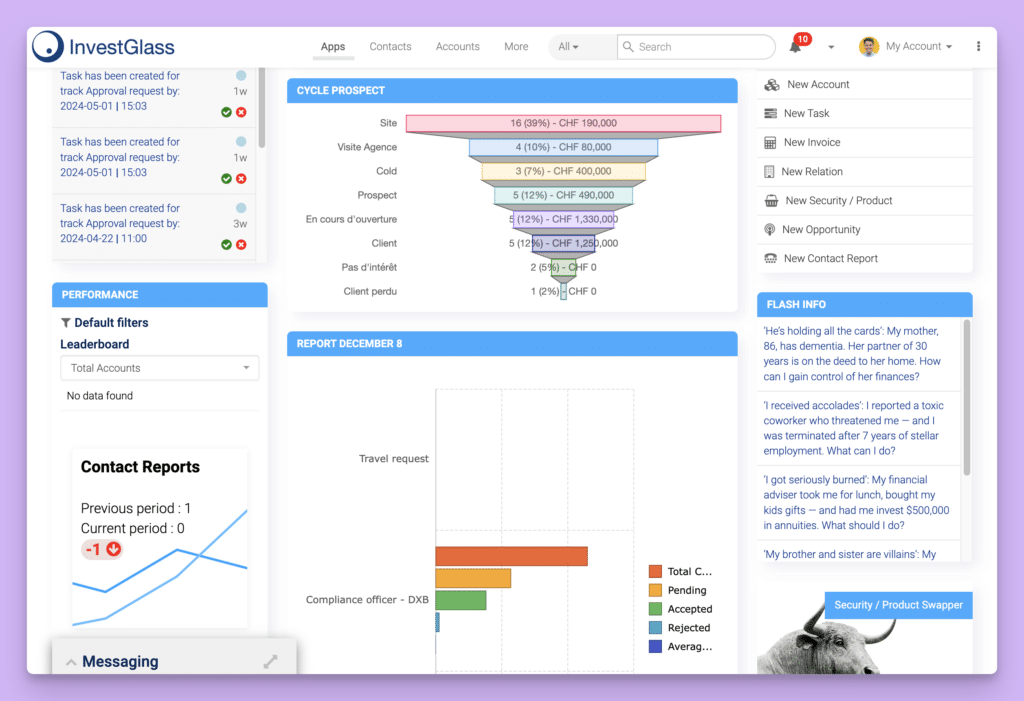
2. Salesforce Financial Services Cloud
Best for: Large institutions with complex customer management needs.
Salesforce’s Financial Services Cloud provides advanced tools for customer insights, onboarding, and regulatory compliance. It’s ideal for banks looking to harness predictive analytics and AI-powered tools to drive smarter decisions.
Key Features:
- 360-Degree Customer View: Detailed profiles for informed interactions.
- Predictive Analytics: Forecast customer needs with AI-powered insights.
- Client & Household Management: Manage relationships across accounts.
Pros: Robust analytics, extensive integrations, strong compliance tools.
Cons: High costs, steep learning curve.
Pricing: Starts at $300 per user/month.
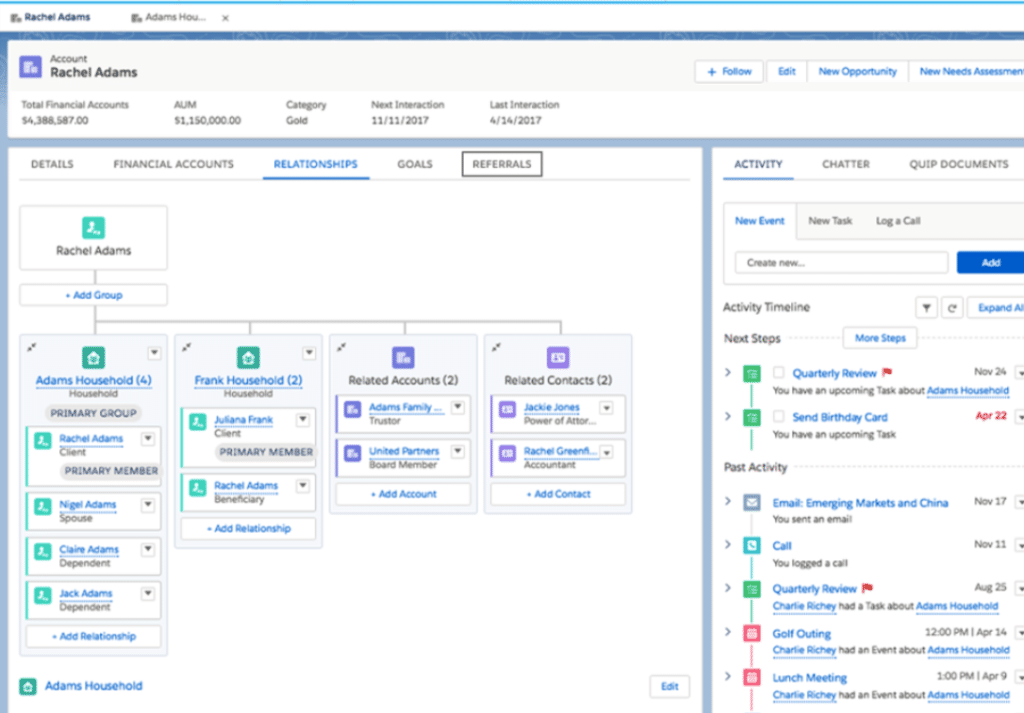
3. Microsoft Cloud for Financial Services
Best for: Banks integrated with the Microsoft ecosystem.
Microsoft offers a comprehensive CRM suite tailored for banking, leveraging Dynamics 365, Azure, and Power Platform. It’s great for managing vast financial data while enhancing collaboration and customer engagement.
Key Features:
- Seamless Integration: Works effortlessly with Microsoft tools.
- 360-Degree Customer View: Deep insights into customer profiles.
- AI Chatbots: Handle queries efficiently with virtual agents.
Pros: Powerful analytics, strong security, native integrations.
Cons: High cost, limited wealth management features.
Pricing: Flexible pricing starting around $20,000 per tenant/month.
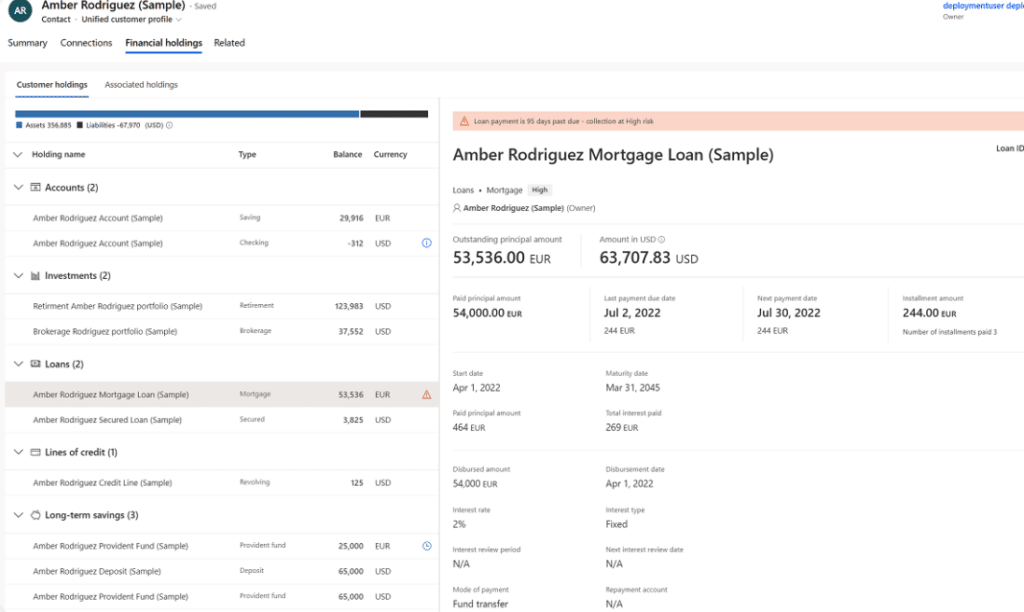
4. Oracle CX for Financial Services
Best for: Banks focused on digital customer experiences.
Oracle CX empowers banks to offer personalized financial solutions and optimize customer journeys through AI and automation.
Key Features:
- AI-Driven Lead Management: Smarter sales strategies.
- Needs Analysis Tools: Personalized product recommendations.
- Robust Insights: AI-backed analytics for better decision-making.
Pros: Strong automation, detailed analytics, AI tools.
Cons: Limited B2C retail banking tools.
Pricing: Ranges from $65 to $300 per user/month.
5. Pegasystems
Best for: Automating workflows in large financial institutions.
Pegasystems combines AI-powered tools and automated workflows to simplify customer management, making financial planning and communication more efficient.
Key Features:
- AI Workflow Automation: Faster, smarter processes.
- 360-Degree Insights: Full customer visibility.
- Campaign Orchestration: Streamlined marketing operations.
Pros: Powerful automation, AI-driven insights.
Cons: Limited wealth management tools.
Pricing: Between $30 to $250 per user/month.
Ratings:
- Capterra: 4.3/5
- Gartner: 4.6/5
- G2: 4.2/5
6. ServiceNow Financial Services Operations
Best for: Banks focused on customer service excellence.
ServiceNow excels in workflow automation and operational efficiency, though its sales and marketing tools are relatively limited.
Key Features:
- Robust Workflow Tools: Simplify operations across teams.
- Risk Management: Proactive compliance monitoring.
- Integrated Collaboration Tools: Enhance team efficiency.
Pros: Strong workflows, great for service-oriented operations.
Cons: Limited sales and marketing tools.
Pricing: Custom pricing based on requirements.
7. BUSINESSNEXT
Best for: Banks prioritizing AI and digital transformation.
BUSINESSNEXT is an AI-powered CRM with smart automation features, ideal for banks aiming for a customer-first approach.
Key Features:
- AI Chatbots: Automated customer assistance.
- Smart Action Center: Real-time customer insights.
- Customizable Workflows: Adaptable processes for unique needs.
Pros: Strong AI integration, smart customer tools.
Cons: Limited agent-led service tools.
Pricing: Custom pricing available.
8. Total Expert
Best for: Mortgage and lending-focused banking.
Total Expert specializes in mortgage banking CRM, offering tools for customer outreach and intelligent campaign automation.
Key Features:
- Pre-built Templates: Compliant marketing assets.
- Intelligent Campaigns: Automated workflows for outreach.
- Retail Banking Integrations: Mortgage-friendly features.
Pros: Great for mortgage-heavy banks.
Cons: Limited lead generation tools.
Pricing: Custom pricing.
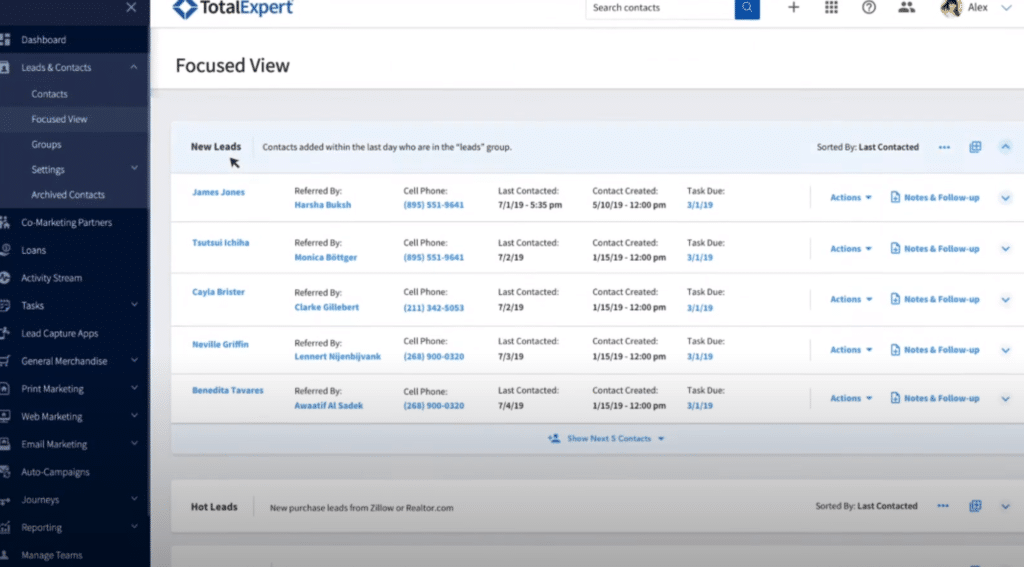
9. Zoho CRM
Best for: Small to midsize banks needing affordability.
Key Features:
- AI Assistants: Automate customer service tasks.
- Lead Management: Prioritize and track leads.
Pros: Budget-friendly, easy to use.
Cons: No banking-specific features.
Pricing: Starts at $15 per user/month.
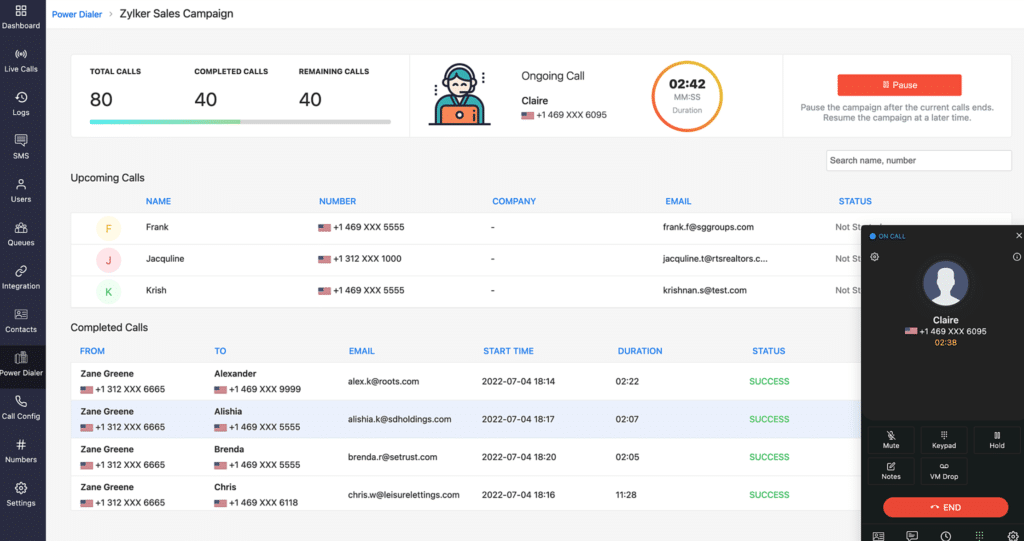
10. HubSpot CRM
Best for: Small financial service firms focusing on marketing.
Key Features:
- AI Service Assistant: Fast support and issue resolution.
Pros: Flexible pricing, great marketing tools.
Cons: Lacks banking-specific features.
Pricing: Ranges from $15 to $3,600 per month.
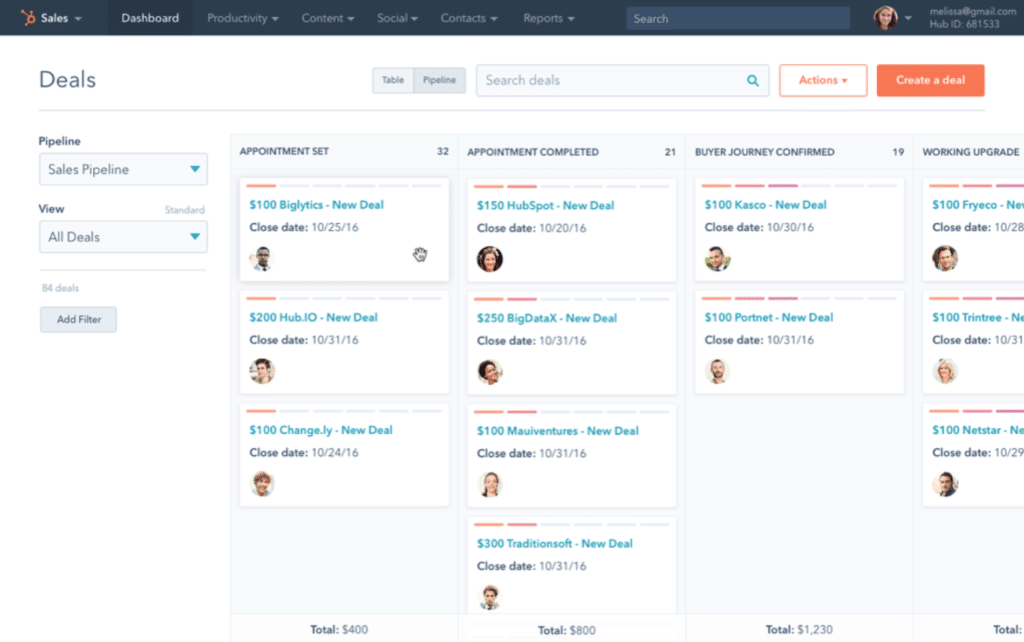
In Conclusion
In an industry where customer expectations are constantly rising, compliance demands are growing more complex, and competition is fiercer than ever, a Customer Relationship Management (CRM) system isn’t just a luxury—it’s the cornerstone of success.
While many CRM platforms offer valuable tools for banks, InvestGlass stands out as the most tailored and comprehensive solution for financial institutions. Specifically built for the banking and wealth management sector, InvestGlass combines deep industry expertise with an intuitive interface, robust automation, and cutting-edge compliance tools.
InvestGlass doesn’t just manage customer relationships—it transforms them. From seamless onboarding workflows to personalized client interactions, integrated portfolio management, and regulatory compliance oversight, InvestGlass addresses the unique challenges of modern banking with precision and efficiency.
By choosing InvestGlass, banks gain:
- A tailored platform built specifically for banking and wealth management needs.
- Advanced automation and workflow tools that drive efficiency.
- Scalable architecture that grows with your organization.
- Industry-leading compliance and security features.
In today’s financial landscape, InvestGlass isn’t just another CRM—it’s the strategic partner your bank needs to deliver unparalleled customer experiences, achieve operational excellence, and stay ahead of the curve.
Ready to unlock the full potential of your banking operations with InvestGlass? Let’s start the conversation today and redefine what’s possible for your institution!